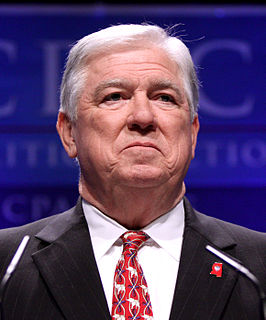A Quote by David Letterman
The oil spill is getting bad. There is so much oil and tar now in the Gulf of Mexico, Cubans can now walk to Miami.
Related Quotes
There have been more than 30,000 oil wells drilled in the Gulf of Mexico in the last 50 years. This is the first time something like this has ever happened [BP Deepwater Horizon oil spill], and we need to get to the bottom of it, find out what happened, make sure it doesn't happen again. But I think it is very reasonable to continue to drill.
With the Gulf spill, I absolutely merged in the time when I had that infection. I couldn't get out of the Gulf spill. There were so many similarities: the drains and the siphoning and the tubes. And also in the way the earth was hurt, the ocean was bleeding. Remember the video cams of the oil gushing? I couldn't stop watching that.
There are signs that the age of petroleum has passed its zenith. Adjusted for inflation, a barrel of crude oil now sells for three times its long-run average. The large western oil companies, which cartellised the industry for much of the 20th century, are now selling more oil than they find, and are thus in the throes of liquidation.
I can at once refute the statement that the people of the West object to conservation of oil resources. They know that there is a limit to oil supplies and that the time will come when they and the Nation will need this oil much more than it is needed now. There are no half measures in conservation of oil.
There's a huge misconception that it's all about the oil, and the truth is there's actually not much oil left in Abyei. The misperception arose because when the peace agreement was signed in 2005, Abyei accounted for a quarter of Sudan's oil production. Since then, the Permanent Court of Arbitration in The Hague defined major oil fields to lie outside Abyei. They're in the north now, not even up for grabs, and they account for one percent of the oil in Sudan. The idea that it's "oil-rich Abyei" is out of date.





























